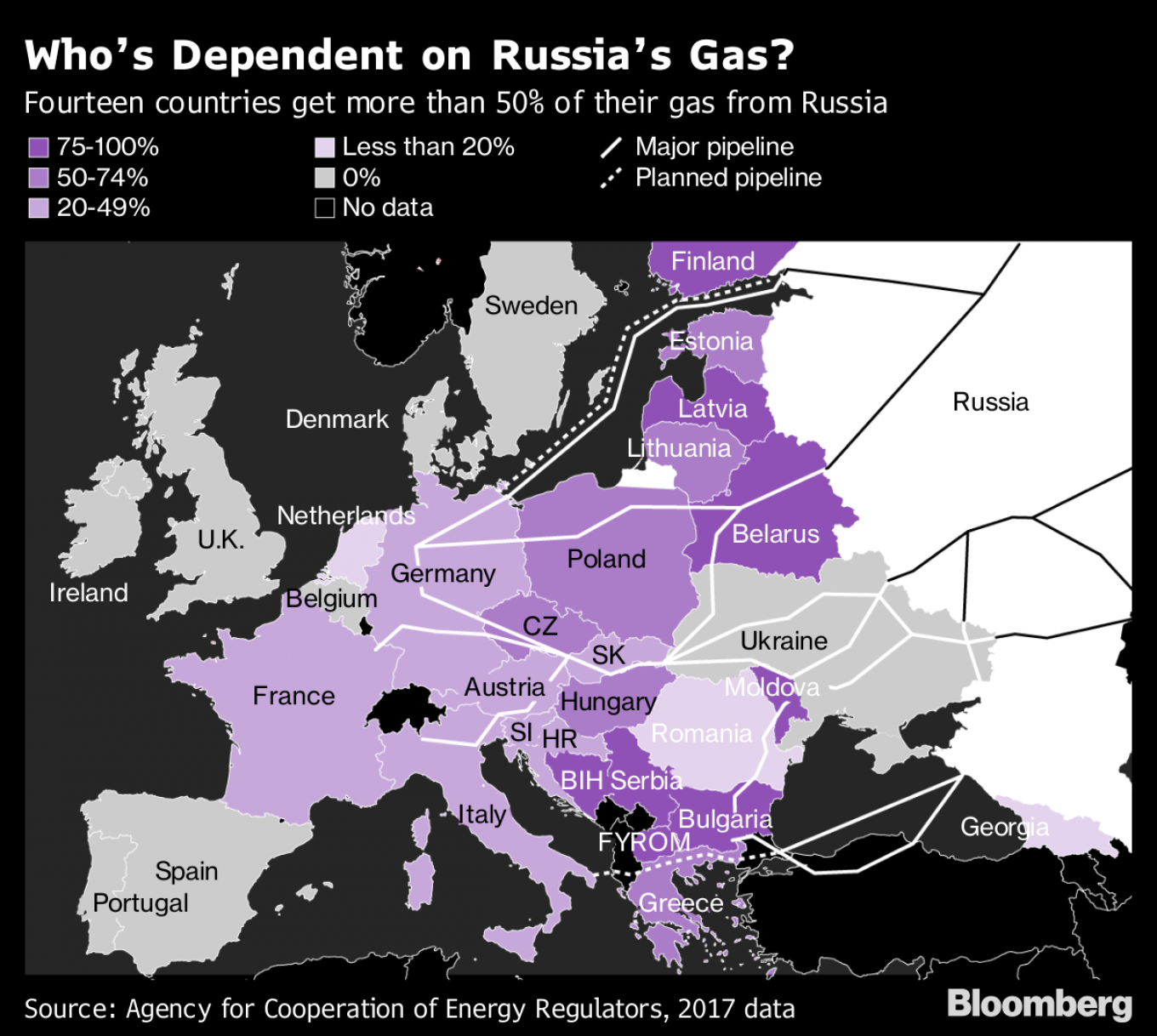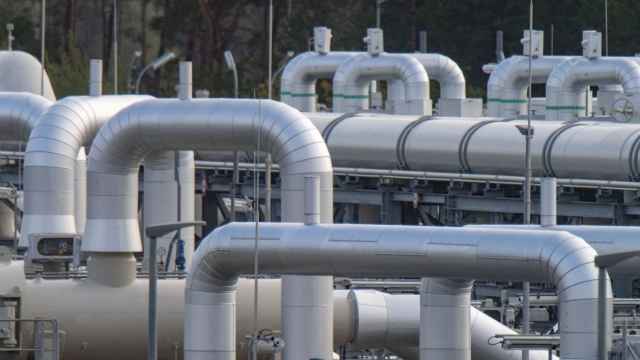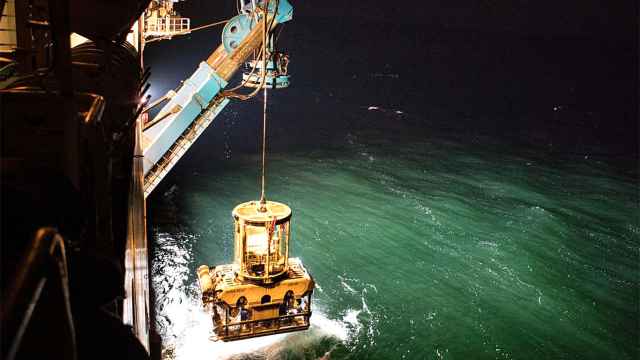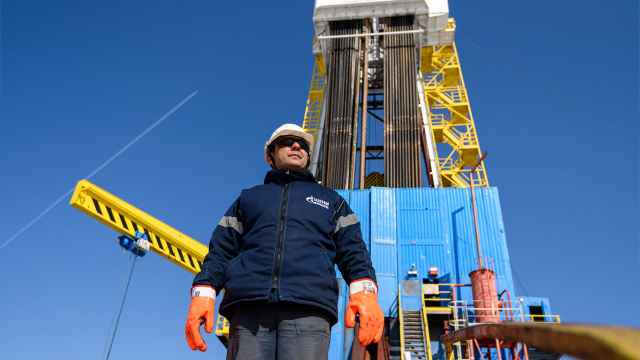Russia’s Gazprom is confident it will send sufficient volumes of natural gas to Europe this winter, even as it faces tough transit talks with Ukraine and negotiations with Denmark over the controversial Nord Stream 2 pipeline.
The Moscow-based company, which last year supplied almost 37 percent of Europe’s gas, is now actively refilling storage facilities in the region to ensure stability of winter deliveries, Gazprom Deputy Chief Executive Officer Elena Burmistrova said in St. Petersburg. Ukraine last week warned of a crisis as negotiations drag on.
Gazprom expects two pipelines that bypass Ukraine — Nord Stream 2 under the Baltic Sea and TurkStream across the Black Sea — to start on schedule by the end of the year. The company is ready for talks with Ukraine on a gas supply and transit contract once the nation holds parliamentary elections and forms a new government later this year, Burmistrova said.
With the “two streams and a possibility of finding an agreement with Ukraine on extending the existing transit contract” Gazprom is sure it can remain a reliable gas supplier to Europe, Burmistrova told reporters at a briefing. “We wouldn’t want to believe in an apocalyptic scenario.”

Long-standing spats between Gazprom and Ukraine have twice resulted in major gas supply cutoffs to Europe over the past 14 years amid cold winter weather. The company’s transit contract with Ukraine’s pipeline operator Naftogaz expires in December 2019, and talks on its renewal have stalled, leading to fears of a repeat.
Meanwhile, Denmark is showing opposition to Nord Stream 2 and the U.S. has threatened to impose sanctions on the Baltic link. That increases the risk of a delay.
However, Europe is better prepared for any cutoffs of Russian gas transit via Ukraine. Prices are near a three-year low as liquefied natural gas (LNG) deliveries have soared, and inventories look healthy after a mild winter.
Gazprom is willing to offset the Ukraine transit risks by adopting a flexible approach to talks with Naftogaz, Burmistrova said.
“Either a mid-term or short-term contract will suit us, we are ready to discuss any options once we understand who we should discuss them with,” she said.
Ukraine is less optimistic about the outcome of the negotiations. Russia appears to be planning a failure to renegotiate its contract with Naftogaz, Yuri Vitrenko, the company’s chief commercial officer, said last week. With Ukraine’s parliamentary elections scheduled for July 21, the next round of gas talks involving the European Commission have been pushed back into the second half of the year. Last week, Russia’s Energy Minister Alexander Novak said that the date of the talks may be determined only in September.
While gas transit talks with Russia are complicated, Naftogaz has a plan B, Vitrenko said on Tuesday in a Facebook post. The Ukrainian company is ready to sign a deal on gas swaps with Gazprom beyond 2019, according to Vitrenko.
Under the swap deal, Gazprom could transfer gas to Naftogaz at the Russian-Ukrainian border and Naftogaz would then send the same volumes to its borders with EU countries, Vitrenko said.
Meanwhile, Gazprom is boosting injections into European underground gas storage sites to mitigate winter supply risks. The company has adopted a strategy of putting at least 5 percent of volumes under the European supply contracts in regional storage facilities to ensure it meets client demand in winter, Burmistrova said.
Gazprom sees no need to revise down its target for deliveries in Europe and Turkey, estimating shipments of 194 billion to 204 billion cubic meters this year. For comparison, that is more than double total U.S. gas exports last year.
“Our supplies of around 200 billion cubic meters per year is a new reality for the European gas market, and it’s all that matters,” Burmistrova said.
A Message from The Moscow Times:
Dear readers,
We are facing unprecedented challenges. Russia's Prosecutor General's Office has designated The Moscow Times as an "undesirable" organization, criminalizing our work and putting our staff at risk of prosecution. This follows our earlier unjust labeling as a "foreign agent."
These actions are direct attempts to silence independent journalism in Russia. The authorities claim our work "discredits the decisions of the Russian leadership." We see things differently: we strive to provide accurate, unbiased reporting on Russia.
We, the journalists of The Moscow Times, refuse to be silenced. But to continue our work, we need your help.
Your support, no matter how small, makes a world of difference. If you can, please support us monthly starting from just $2. It's quick to set up, and every contribution makes a significant impact.
By supporting The Moscow Times, you're defending open, independent journalism in the face of repression. Thank you for standing with us.
Remind me later.






